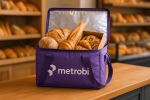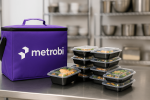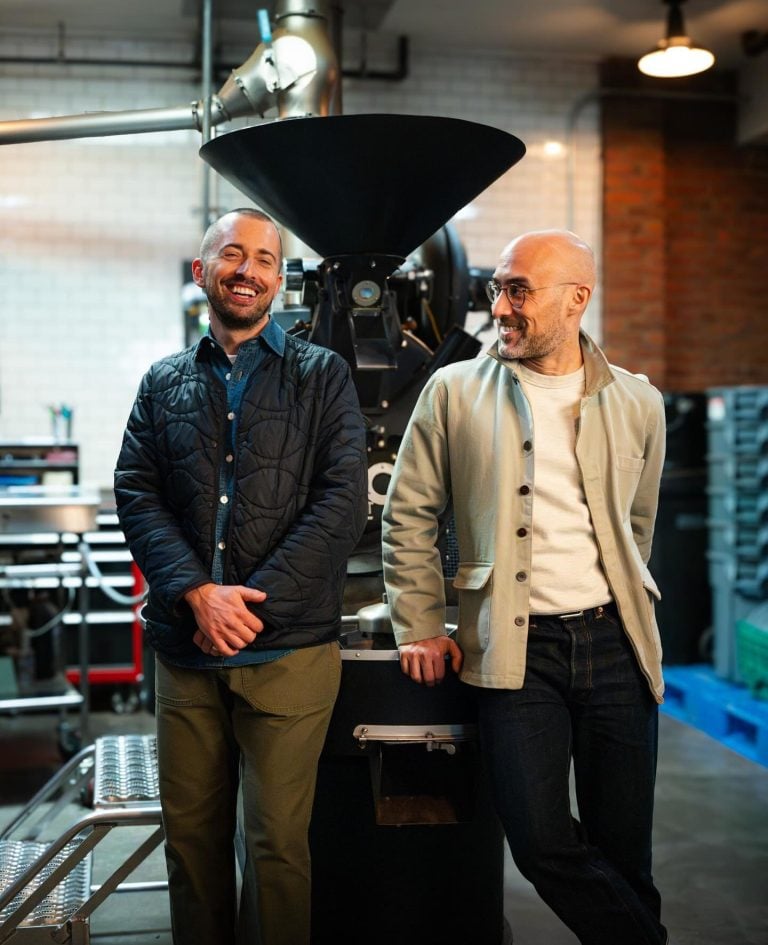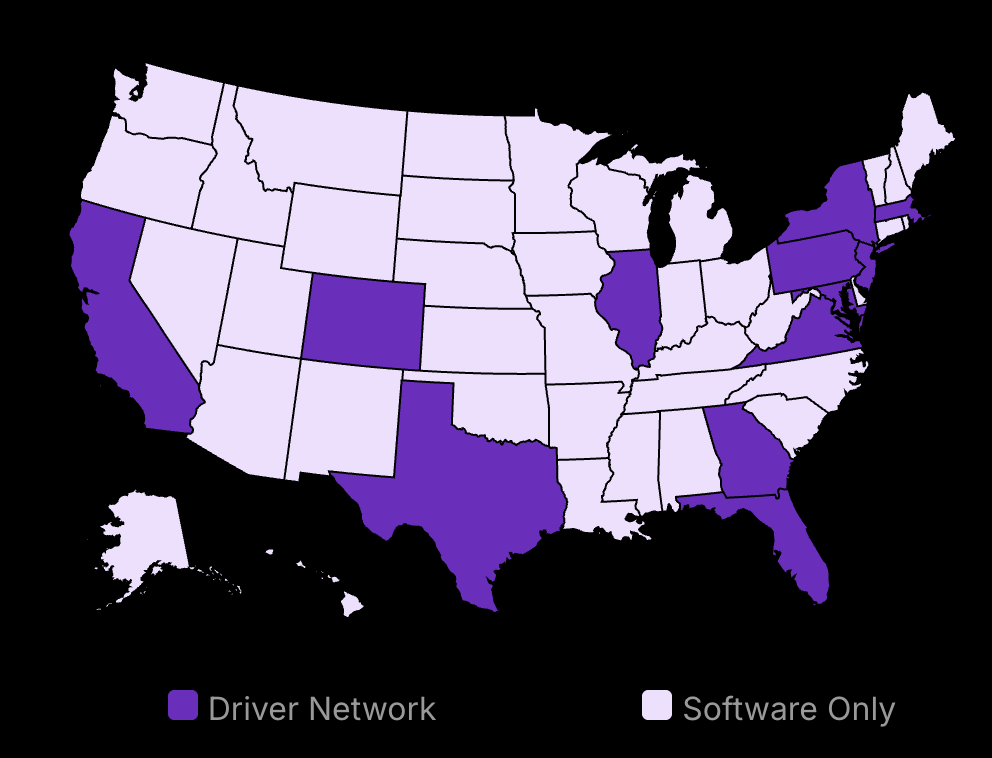Your small bakery has a problem with managing its finances. While you’re creating perfect pastries in an organized manner, your competition is running software that tracks every grain of flour, predicts customer rushes, and handles ordering without breaking a sweat. Meanwhile, you’re still counting inventory on clipboards and guessing how many croissants to make tomorrow.
The gap between tech-enabled bakeries and traditional shops is growing wider. In 2025, the right software for your bakery business isn’t just helpful—it’s essential for profitability and survival.
But here’s the truth most software companies won’t tell you: most bakery management systems are built for chains with 20+ locations and six-figure budgets, making it difficult for small shops to reduce costs. They’re packed with features you’ll never use and priced like they’re made with gold instead of code.
Small bakery owners face a brutal choice: overpay for enterprise solutions or cobble together spreadsheets and basic POS systems that don’t talk to each other, complicating the management of materials.
Some small bakeries increased profits by 23% after implementing the right software that helps to minimize waste. Others wasted thousands on systems they abandoned within months.
This guide cuts through the marketing noise to answer one question: Which bakery management software is best for small shops in 2025? Whether you’re a sourdough specialist or cupcake creator, you need software that works as hard as you do—without requiring a computer science degree to operate.
Let’s find your perfect match.
The Global Bakery Management Software
The global bakery management software market size was valued at approximately $2.7 billion in 2024 and is expected to grow steadily.
Save 80% of delivery management time
We handle everything:
- Dedicated operations manager
- Real-time tracking dashboard
- Automated customer notifications
- Urgent issue resolution
Top Bakery Management Software for Small Shops
Finding the right software for your bakery can save time and increase profits. The 2025 market offers many options for small shop owners who need help with their business, including custom orders, inventory, and customer relationships.
Bakery Management Software
Bakery management software supports compliance with food safety standards and quality control processes, which is critical for both small artisans and large commercial bakeries.
In our research, we tested dozens of bakery management systems to find the best for small operations. We looked at functionality, ease of use, and value—all things small bakery owners care about.
To help you decide where to spend your money, we’ll evaluate each option based on these criteria:
Ease of use
Feature completeness
Price and value
Customer support
Mobile functionality
Inventory management
Order tracking
Reporting capabilities
Integration with other systems
Scalability for growth
We’ve done the hard work so you can focus on baking. Let’s look at the top options for 2025.
Comprehensive Overview of Leading Options
BakeSmart Pro
BakeSmart Pro leads the pack with its all-in-one approach to bakery management. This system handles everything from recipe costing to production scheduling of various bakery products.
Key Features:
Full inventory management with automatic reordering
Production scheduling with waste reduction tools
Integrated POS with customer loyalty tracking
Recipe scaling with cost calculations
Performance Metrics:
89% of users report saving 5+ hours weekly on administrative tasks
Average inventory waste reduction of 23% after six months
Customer data shows 97% uptime reliability
Small bakeries particularly like the recipe costing tool, which helps price food manufacturing products accurately based on ingredient costs and labor.
FlourPower
FlourPower is the newcomer making waves in the bakery software market. Built specifically for artisan bakeries, it focuses on production planning and quality control.
Key Features:
Visual production timelines
Temperature and humidity tracking for perfect fermentation
Custom recipe database with revision history
Wholesale order management
Performance Metrics:
Users report 35% faster order processing
91% customer satisfaction rating
28% average increase in production capacity
Bakery business owners praise FlourPower’s fermentation tracking, which helps maintain consistent quality in sourdough and other artisan products.
BakeTrack
BakeTrack offers a streamlined approach to help bakeries streamline operations that need simple, effective management without complex features.
Key Features:
Simple order tracking system
Basic inventory management
Customer database with order history
Cloud-based access from anywhere
Performance Metrics:
78% of users set up the system in under one day
Average 18% reduction in unfilled orders
92% of small bakeries reported the cost as “reasonable” or “very reasonable”
Users love BakeTrack’s straightforward interface that requires minimal training—perfect for bakeries with staff who may not be tech-savvy.
Real-World Success Stories
Sweet Success Bakery: 40% Growth with BakeSmart Pro
Lisa Chen opened Sweet Success Bakery in 2023 with just herself and one part-time employee. After struggling with paper orders and spreadsheets, she implemented BakeSmart Pro in early 2024.
“Before the software, I was staying up until midnight counting inventory and planning production. Now the system does it automatically,” Chen explains.
Results after one year of optimizing inventory and packaging :
Order errors decreased by 68%
Production time reduced by 3 hours daily
Customer base grew by 40%
Added two full-time employees
The $179 monthly investment paid for itself within the first three months through reduced waste and better inventory management.
Hometown Bread Co: Scaling Up with FlourPower
When Marcus Johnson needed to expand his small artisan bread bakery, he chose FlourPower to help manage increased production.
“We were making 200 loaves daily and couldn’t keep up with demand. The old clipboard system wasn’t working anymore,” Johnson says.
After implementing FlourPower:
Production increased to 350 loaves daily
Consistent bread quality despite higher volume
Wholesale accounts increased from 8 to 22
Labor costs decreased by 15% relative to production volume
The bakery achieved a 210% return on investment within the first year, primarily through expanded wholesale capabilities and production efficiency.
Family Cake Shop: Simplifying with BakeTrack
The Family Cake Shop had been in business for 30 years when they finally decided to go digital with BakeTrack.
Owner Pam Williams recalls, “We were losing orders and double-booking wedding cakes. The stress was huge.”
After six months with BakeTrack:
Zero missed or double-booked orders
Customer satisfaction scores improved by 32%
Staff spent 76% less time on phone calls
Order capacity increased by 25%
For a small shop charging premium prices for custom cakes, the improved reliability translated to an additional $2,800 monthly revenue from increased capacity and referrals.
Small bakery management has changed dramatically. Today’s software options help shop owners track orders, manage inventory, and grow their customer base without needing a large staff. The right system can help streamline operations and process effectively, paying for itself quickly through waste reduction, better customer service, and increased production capacity.
The Role Of North America in The Global Bakery Management Software Market
North America holds a significant share of the market, accounting for approximately 35% of the global bakery software market in 2023, driven by widespread digital adoption in bakery chains.
Metrobi is transforming bakery deliveries
Specialized solutions for bakery businesses:
- Bakery-trained drivers
- Proper handling equipment
- Peak day delivery support
- 23% average cost reduction
Key Features in Bakery Management Software That Make a Difference
When selecting bakery management software for your small shop, certain features stand out as game-changers for daily operations. The right features can transform how you run your bakery, from tracking inventory to handling sales efficiently.
The global bakery management software market was valued at $24 billion in 2023 and is projected to reach $63.84 billion by 2030, showing how essential these tools, including features for full traceability, have become for bakery businesses of all sizes.
For small bakery owners in 2025, two critical components deserve special attention: robust inventory management and efficient point-of-sale systems that ensure regulatory compliance. These features address the fundamental needs of running a successful bakery while setting the foundation for growth.
Before we dive into these specific features, let’s establish the criteria we’ll use to judge the best bakery software options. I’ve thoroughly researched the market to help you make an informed decision based on:
Ease of Use
Inventory Management Capabilities
POS System Integration
Recipe Management
Cost-Effectiveness
Customer Relationship Tools
Reporting Features
Mobile Access
Scalability
Technical Support
Inventory Tracking and Management
Effective inventory management is the backbone of any successful bakery. Without it, you risk running out of essential ingredients during busy periods or wasting money on excess supplies that spoil before use.
Modern bakery inventory systems offer several key advantages:
Precise ingredient tracking: Monitor flour, sugar, butter, and specialty items down to the gram
Expiration date monitoring: Automatic alerts when ingredients are nearing expiration
Usage pattern analysis: Identify which ingredients you use most frequently
Waste reduction: Data-driven insights to minimize excess ordering
Real-time inventory updates work through cloud-based systems that instantly reflect changes across your entire business. When you use 5kg of flour for a batch of bread, the system automatically updates your inventory counts. This prevents the common problem of discovering you’re out of a critical ingredient mid-production.
Most bakery software includes inventory management modules with features like control of stock levels and tracking.
Automated reordering when supplies reach predetermined thresholds
Supplier management tools to track vendor information and pricing
Demand forecasting based on historical sales data
Barcode scanning for quick stock updates
Batch tracking for food safety compliance
These capabilities become even more valuable as your bakery grows. With real-time visibility into your inventory status, you can make informed decisions about purchasing, production scheduling, and menu planning.
Streamlined Point-of-Sale Systems for Bakeries
An effective POS system does far more than just process payments—it serves as the central hub connecting your sales, inventory, and customer data.
Integrated POS systems designed specifically for bakeries offer significant benefits:
Seamless connection between front counter sales and back-office inventory
Automatic inventory deduction when products are sold
Customer order history tracking for personalized service
Support for various payment methods, including contactless options
Quick processing of special orders and custom requests
The best bakery POS systems prioritize ease of use for your staff. With intuitive interfaces and minimal training requirements, even seasonal or part-time employees can quickly learn to process transactions accurately, helping manage business information. This is particularly important during rush periods when efficiency is crucial.
Speed improvements come from features like:
Touch-screen interfaces optimized for bakery operations
Quick-select buttons for common items
Integrated scales for weight-based pricing
Mobile POS options for line-busting during busy periods
Direct kitchen display system connections to communicate orders
These systems also help you better understand your customers’ preferences. By tracking which products sell best at different times of day, you can optimize your production schedule and reduce waste. Customer relationship management features let you build loyalty through repeat purchase rewards and birthday specials.
For small bakeries looking to compete with larger establishments, having a modern, efficient POS system creates a professional impression while improving operational efficiency behind the scenes.
Trends in Bakery Management Software in 2025
2025 shows a major shift to cloud-based bakery software with AI features
Small bakeries now have affordable options with flexible pricing ($30-100/month)
Consumer demand for specialty products and online ordering drives new software features
Key Software Developments in 2025
The first quarter of 2025 saw a clear shift toward cloud-based systems. Bakery owners increasingly moved away from traditional installed software to solutions that offer anywhere access. By March, even the smallest bakeries were adopting these platforms to manage their operations remotely.
In the second quarter, we witnessed the introduction of more advanced AI features in bakery software. These tools now offer predictive capabilities that help with inventory management and production planning. For example, systems can analyze past sales data alongside weather forecasts and local events to predict how many of each item to produce.
The third quarter brought enhanced integration capabilities. New software releases now connect seamlessly with e-commerce platforms, delivery services, and accounting systems. This integration creates a smooth flow of information from online orders to production schedules to financial records.
By the final quarter of 2025, mobile functionality became standard. Staff can now handle most management tasks from smartphones or tablets, from checking inventory to processing customer orders. This mobility has been particularly valuable for bakery owners who need to manage their business while working in the kitchen or away from the shop.
AI and Machine Learning Features in Bakery Management Software
AI and machine learning features are increasingly integrated into bakery software, optimizing production schedules, inventory, and decision-making processes.
Automation Takes Center Stage
Automation features have seen remarkable improvement throughout 2025. New systems can now automatically:
Update inventory when ingredients are used in production
Alert staff when supplies run low
Generate purchase orders for vendors
Adjust production schedules based on orders and inventory levels
Track batch numbers for food safety compliance
These automation capabilities save significant time and reduce errors in daily operations. Small bakeries report spending 30% less time on administrative tasks after implementing these features.
Shifting Consumer Demands
Consumer preferences have changed dramatically over the past year. The USDA reports a 15% increase in baked goods consumption over the past decade, with particular growth in specialty items and processes to meet demand. This shift has pushed bakeries to diversify their offerings and adopt software that can handle complex product lines.
Online ordering has continued its upward trend throughout 2025. Customers now expect to browse a bakery’s full catalog online, place orders for pickup or delivery, and receive updates about their order status. Bakery software has evolved to meet these expectations with enhanced e-commerce integration and automated customer communications.
Health-conscious consumers are demanding more detailed ingredient information. In response, bakery software now includes more robust nutritional tracking and allergen management features. These tools help bakeries provide accurate information to customers while ensuring compliance with labeling regulations.
Personalization has become increasingly important in 2025. Customers want the ability to customize their orders, from cake decorations to dietary modifications. Bakery software now includes more sophisticated order customization options that flow directly into production instructions.
The Local and Artisanal Movement
The demand for artisanal and locally sourced products has grown stronger this year. Small bakeries are focusing on what makes them unique—specialty items that larger competitors can’t easily replicate. Software now helps these bakeries track and manage their raw materials, promote their use of local ingredients, unique recipes, and special production methods.
This trend has created new requirements for bakery software. Programs now include features for:
Tracking ingredient origins for farm-to-table marketing
Managing small-batch production schedules
Creating custom recipes with accurate costing
Highlighting specialty products on online platforms
Supporting loyalty programs that reward regular customers
These features help small bakeries compete and provide a clear picture of their unique qualities rather than trying to match the volume of larger operations.
Affordable Bakery Software Options
The cost structure of bakery software has changed significantly in 2025. Most providers now offer tiered pricing models that make advanced features accessible while helping to reduce costs for small operations. Entry-level packages typically range from $30 to $100 per month for basic features in food manufacturing, with additional costs for advanced modules.
Many vendors have shifted to modular pricing approaches. This model allows bakeries to start with essential features and add capabilities as many systems evolve their business evolves. A small bakery might begin with inventory and POS modules, then add e-commerce integration and customer relationship management as they expand.
Subscription-based pricing has become the standard, replacing the large upfront costs of traditional software purchases. This change makes high-quality software more accessible to small bakeries with limited capital. Monthly payments are easier to manage than major one-time investments.
Finding the Right Balance of Features and Cost
For small bakeries, the key is finding software that offers essential functionality without unnecessary complexity. The most cost-effective options in 2025 focus on:
Core inventory management
Basic production planning
Simple POS functionality
Standard reporting tools
Essential customer management
These systems provide the foundation for efficient operations without the cost of advanced features that small bakeries may not need initially. As a bakery grows, it can add more sophisticated capabilities.
The return on investment for these systems is compelling. Even basic bakery software typically results in a 10-20% increase in operational efficiency through reduced waste, better inventory control, and streamlined order processing. This improvement often pays for the software subscription many times over.
The Bakery Processing Equipment Market
The bakery processing equipment market, related but distinct, is valued at $15.1 billion in 2025 and is growing alongside bakery software adoption.
Budget-Friendly Implementation Strategies
Many small bakeries have found success with a phased implementation approach. Rather than trying to adopt all features at once, they start with the most critical functions and gradually expand their use of the software. This strategy allows staff to adapt to changes gradually while spreading out training costs.
Cloud-based solutions have significantly reduced implementation expenses. Without the need for on-site servers or extensive IT support, small bakeries can now implement organized professional-grade software with minimal technical expertise. Most providers offer remote setup assistance and training as part of their subscription packages.
Free trial periods have become standard in the industry. These trials, typically lasting 14 to 30 days, allow bakery owners to test software before committing to a subscription. This approach reduces the risk of investing in a system that doesn’t meet their needs.
For the smallest operations, several providers now offer stripped-down “micro bakery” packages. These simplified systems provide essential functionality at lower price points, often starting around $20-30 per month. While limited in features, these entry-level options provide a path for very small bakeries to begin using professional software.
Based on current trends, I recommend small bakery owners evaluate their software needs by starting with inventory and order management capabilities, then adding features to better schedule operations as their business grows. The flexible pricing models now available make it possible to access professional-grade tools without breaking the budget.
Order Management Software For Bakery Business

As we reach the end of 2025, choosing the right bakery management software for your small shop isn’t just about following trends—it’s about making a smart business decision that affects your daily operations. The software options we’ve explored offer specialized tools that can transform inventory tracking, handle custom orders, streamline sales, and build customer loyalty without breaking your budget.
The Global Bakery Software Market For Better Inventory Management or Custom Orders
The global bakery software market was valued at around $4.9 billion in 2023, indicating rapid growth from the previous years.
Whether you’re drawn to cloud-based systems that let you manage your bakery from anywhere or are focused on finding affordable solutions with the essential features, the right software should grow with your business and help manage essential business information. Small bakery owners who implement these digital tools consistently report saving time, reducing waste, and increasing profits.
The bakery industry continues to change, but one thing remains constant: software that works with your specific needs will give you an edge. Take time to assess which bakery management software matches your shop’s size, budget, and goals, as many systems offer tailored solutions. Start with a free trial where available, talk to other bakery owners, and choose a system that feels right for your unique business.


